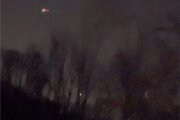DAKAR, Senegal (AP) — Local journalists in the Sahel region of Africa are facing increased security risks, a media freedom group said Tuesday, as extremist attacks and military coups have shaken the region in recent years.
At least two community radio journalists were killed and two kidnapped by armed groups in Mali and Chad since November last year, Reporters Without Borders said in a statement calling for the protection of local journalists.
“These crimes illustrate once again the deteriorating security context in which journalists in the Sahel are working,” Anne Bocandé, the organization’s editorial director, said.
“They are still present in these territories, to which no other information professional has access any more,” she added.
Three nations in the Sahel, an arid swath of land south of the Sahara, have been wracked by coups in recent years. Mali, Niger and Burkina Faso are now ruled by military leaders who took power by force, pledging to provide more security to citizens.
But the security situation in the Sahel has worsened since the juntas took power, analysts say, with a record number of attacks and a record number of civilians killed both by Islamic militants and government forces. Over the first six months of this year, 3,064 civilians were killed by the violence, according to the Armed Conflict Location and Event Data Project, a 25% increase compared to the previous six months.
Meanwhile, the ruling juntas have cracked down on political dissent and journalists. Earlier this year, Malian authorities banned the media from reporting on the activities of political parties and associations. Burkina Faso suspended the BBC and Voice of America radio stations for their coverage of a mass killing of civilians carried out by the country’s armed forces.
In June, at least three journalists in Burkina Faso disappeared under suspicious circumstances, according to the Committee to Protect Journalists.
“Generally speaking, the three juntas censor the media as soon as the security situation in the country is addressed in an unpleasant manner or when abuses are revealed,” Sadibou Marong, head of the sub-Saharan Africa office of Reporters Without Borders, told The Associated Press.
“Finding reliable and neutral information on government activities has become extremely complex, as has covering security situation in these countries,” Marong added.
Copyright © 2024 The Associated Press. All rights reserved. This material may not be published, broadcast, written or redistributed.





